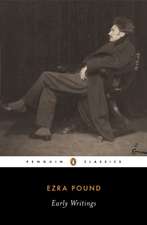The Handmaid's Tale
Autor Margaret Atwooden Limba Engleză Paperback – 12 sep 2005
The Handmaid’s Tale is a novel of such power that the reader will be unable to forget its images and its forecast. Set in the near future, it describes life in what was once the United States and is now called the Republic of Gilead, a monotheocracy that has reacted to social unrest and a sharply declining birthrate by reverting to, and going beyond, the repressive intolerance of the original Puritans. The regime takes the Book of Genesis absolutely at its word, with bizarre consequences for the women and men in its population.
The story is told through the eyes of Offred, one of the unfortunate Handmaids under the new social order. In condensed but eloquent prose, by turns cool-eyed, tender, despairing, passionate, and wry, she reveals to us the dark corners behind the establishment’s calm facade, as certain tendencies now in existence are carried to their logical conclusions. The Handmaid’s Tale is funny, unexpected, horrifying, and altogether convincing. It is at once scathing satire, dire warning, and a tour de force. It is Margaret Atwood at her best.
| Toate formatele și edițiile | Preț | Express |
|---|---|---|
| Paperback (8) | 51.67 lei 24-30 zile | +29.70 lei 4-10 zile |
| Vintage Publishing – 4 aug 2016 | 51.67 lei 24-30 zile | +29.70 lei 4-10 zile |
| Random House – 19 sep 1996 | 53.42 lei 24-30 zile | +19.50 lei 4-10 zile |
| Random House – 7 oct 2010 | 53.71 lei 24-30 zile | +19.100 lei 4-10 zile |
| Random House – 5 apr 2018 | 56.89 lei 3-5 săpt. | +7.20 lei 4-10 zile |
| Anchor Books – 28 feb 1998 | 72.17 lei 3-5 săpt. | +10.04 lei 4-10 zile |
| Klett Sprachen GmbH – 12 sep 2005 | 85.11 lei 17-23 zile | +7.90 lei 4-10 zile |
| Cornelsen Verlag GmbH – iul 2005 | 89.32 lei 17-23 zile | +8.30 lei 4-10 zile |
| Harpercollins – 21 noi 2023 | 178.43 lei 3-5 săpt. | |
| Hardback (5) | 73.22 lei 24-30 zile | +56.10 lei 4-10 zile |
| EVERYMAN – 7 sep 2006 | 73.22 lei 24-30 zile | +56.10 lei 4-10 zile |
| Random House – 4 apr 2024 | 90.83 lei 24-30 zile | +33.13 lei 4-10 zile |
| Pearson Education – 8 feb 1993 | 128.01 lei 3-5 săpt. | +14.11 lei 4-10 zile |
| HarperCollins Publishers – 24 apr 2017 | 152.41 lei 3-5 săpt. | |
| Everyman's Library – 30 sep 2006 | 155.09 lei 3-5 săpt. | +68.13 lei 4-10 zile |
| CD-Audio (1) | 86.51 lei 24-30 zile | +28.10 lei 4-10 zile |
| Random House – 6 mai 2019 | 86.51 lei 24-30 zile | +28.10 lei 4-10 zile |
Preț: 85.11 lei
Nou
16.29€ • 16.96$ • 13.77£
Carte disponibilă
Livrare economică 13-19 februarie
Livrare express 31 ianuarie-06 februarie pentru 17.89 lei
Specificații
ISBN-10: 3125776929
Pagini: 324
Dimensiuni: 133 x 199 x 27 mm
Greutate: 0.27 kg
Editura: Klett Sprachen GmbH
Recenzii de la cititorii Books Express
Victor Tanasa a dat nota:
I find it very hard to write a review that will give this book the justice it deserves. Instead, I'll make a list of the things I loved about it. It's the way it made me feel, Atwood's style, Offred as a character, the way in which she views the world around her, how she slips into recollection when things are too much for her, the interactions between her and the other characters; the nuances, the ambiguity and the whole cast of characters. The nail-biting ending. I've never read anything like this. It's pretty much perfect.
Notă biografică
Atwood has won numerous awards including the Arthur C. Clarke Award for Imagination in Service to Society, the Franz Kafka Prize, the Peace Prize of the German Book Trade, the PEN USA Lifetime Achievement Award and the Dayton Literary Peace Prize. In 2019 she was made a member of the Order of the Companions of Honour for services to literature. She has also worked as a cartoonist, illustrator, librettist, playwright and puppeteer. She lives in Toronto, Canada.
Descriere
In the world of the near future, who will control women's bodies?
Offred is a Handmaid in the Republic of Gilead. She may leave the home of the Commander and his wife once a day to walk to food markets whose signs are now pictures instead of words because women are no longer allowed to read. She must lie on her back once a month and pray that the Commander makes her pregnant, because in an age of declining births, Offred and the other Handmaids are only valued if their ovaries are viable.
Offred can remember the days before, when she lived and made love with her husband Luke; when she played with and protected her daughter; when she had a job, money of her own, and access to knowledge. But all of that is gone now....
Funny, unexpected, horrifying, and altogether convincing, The Handmaid's Tale is at once scathing satire, dire warning, and tour de force.
Recenzii
Extras
We slept in what had once been the gymnasium. The floor was of varnished wood, with stripes and circles painted on it, for the games that were formerly played there; the hoops for the basketball nets were still in place, though the nets were gone. A balcony ran around the room, for the spectators, and I thought I could smell, faintly like an afterimage, the pungent scent of sweat, shot through with the sweet taint of chewing gum and perfume from the watching girls, felt-skirted as I knew from pictures, later in miniskirts, then pants, then in one earring, spiky green-streaked hair. Dances would have been held there; the music lingered, a palimpsest of unheard sound, style upon style, an undercurrent of drums, a forlorn wail, garlands made of tissue-paper flowers, cardboard devils, a revolving ball of mirrors, powdering the dancers with a snow of light.
There was old sex in the room and loneliness, and expectation, of something without a shape or name. I remember that yearning, for something that was always about to happen and was never the same as the hands that were on us there and then, in the small of the back, or out back, in the parking lot, or in the television room with the sound turned down and only the pictures flickering over lifting flesh.
We yearned for the future. How did we learn it, that talent for insatiability? It was in the air; and it was still in the air, an afterthought, as we tried to sleep, in the army cots that had been set up in rows, with spaces between so we could not talk. We had flannelette sheets, like children's, and army-issue blankets, old ones that still said U.S. We folded our clothes neatly and laid them on the stools at the ends of the beds. The lights were turned down but not out. Aunt Sara and Aunt Elizabeth patrolled; they had electric cattle prods slung on thongs from their leather belts.
No guns though, even they could not be trusted with guns. Guns were for the guards, specially picked from the Angels. The guards weren't allowed inside the building except when called, and we weren't allowed out, except for our walks, twice daily, two by two around the football field, which was enclosed now by a chain-link fence topped with barbed wire. The Angels stood outside it with their backs to us. They were objects of fear to us, but of something else as well. If only they would look. If only we could talk to them. Something could be exchanged, we thought, some deal made, some tradeoff, we still had our bodies. That was our fantasy.
We learned to whisper almost without sound. In the semidarkness we could stretch out our arms, when the Aunts weren't looking, and touch each other's hands across space. We learned to lip-read, our heads flat on the beds, turned sideways, watching each other's mouths. In this way we exchanged names, from bed to bed:
Alma. Janine. Dolores. Moira. June.
II
Shopping
2
A chair, a table, a lamp. Above, on the white ceiling, a relief ornament in the shape of a wreath, and in the center of it a blank space, plastered over, like the place in a face where the eye has been taken out. There must have been a chandelier, once. They've removed anything you could tie a rope to.
A window, two white curtains. Under the window, a window seat with a little cushion. When the window is partly open--it only opens partly--the air can come in and make the curtains move. I can sit in the chair, or on the window seat, hands folded, and watch this. Sunlight comes in through the window too, and falls on the floor, which is made of wood, in narrow strips, highly polished. I can smell the polish. There's a rug on the floor, oval, of braided rags. This is the kind of touch they like: folk art, archaic, made by women, in their spare time, from things that have no further use. A return to traditional values. Waste not want not. I am not being wasted. Why do I want?
On the wall above the chair, a picture, framed but with no glass: a print of flowers, blue irises, watercolor. Flowers are still allowed. Does each of us have the same print, the same chair, the same white curtains, I wonder? Government issue?
Think of it as being in the army, said Aunt Lydia.
A bed. Single, mattress medium-hard, covered with a flocked white spread. Nothing takes place in the bed but sleep; or no sleep. I try not to think too much. Like other things now, thought must be rationed. There's a lot that doesn't bear thinking about. Thinking can hurt your chances, and I intend to last. I know why there is no glass, in front of the watercolor picture of blue irises, and why the window opens only partly and why the glass in it is shatterproof. It isn't running away they're afraid of. We wouldn't get far. It's those other escapes, the ones you can open in yourself, given a cutting edge.
So. Apart from these details, this could be a college guest room, for the less distinguished visitors; or a room in a rooming house, of former times, for ladies in reduced circumstances. That is what we are now. The circumstances have been reduced; for those of us who still have circumstances.
But a chair, sunlight, flowers: these are not to be dismissed. I am alive, I live, I breathe, I put my hand out, unfolded, into the sunlight. Where I am is not a prison but a privilege, as Aunt Lydia said, who was in love with either/or.
The bell that measures time is ringing. Time here is measured by bells, as once in nunneries. As in a nunnery too, there are few mirrors.
I get up out of the chair, advance my feet into the sunlight, in their red shoes, flat-heeled to save the spine and not for dancing. The red gloves are lying on the bed. I pick them up, pull them onto my hands, finger by finger. Everything except the wings around my face is red: the color of blood, which defines us. The skirt is ankle-length, full, gathered to a flat yoke that extends over the breasts, the sleeves are full. The white wings too are prescribed issue; they are to keep us from seeing, but also from being seen. I never looked good in red, it's not my color. I pick up the shopping basket, put it over my arm.
The door of the room--not my room, I refuse to say my--is not locked. In fact it doesn't shut properly. I go out into the polished hallway, which has a runner down the center, dusty pink. Like a path through the forest, like a carpet for royalty, it shows me the way.
The carpet bends and goes down the front staircase and I go with it, one hand on the banister, once a tree, turned in another century, rubbed to a warm gloss. Late Victorian, the house is, a family house, built for a large rich family. There's a grandfather clock in the hallway, which doles out time, and then the door to the motherly front sitting room, with its flesh tones and hints. A sitting room in which I never sit, but stand or kneel only. At the end of the hallway, above the front door, is a fanlight of colored glass: flowers, red and blue.
There remains a mirror, on the hall wall. If I turn my head so that the white wings framing my face direct my vision towards it, I can see it as I go down the stairs, round, convex, a pier glass, like the eye of a fish, and myself in it like a distorted shadow, a parody of something, some fairy-tale figure in a red cloak, descending towards a moment of carelessness that is the same as danger. A Sister, dipped in blood.
At the bottom of the stairs there's a hat-and-umbrella stand, the bentwood kind, long rounded rungs of wood curving gently up into hooks shaped like the opening fronds of a fern. There are several umbrellas in it: black, for the Commander, blue, for the Commander's Wife, and the one assigned to me, which is red. I leave the red umbrella where it is, because I know from the window that the day is sunny. I wonder whether or not the Commander's Wife is in the sitting room. She doesn't always sit. Sometimes I can hear her pacing back and forth, a heavy step and then a light one, and the soft tap of her cane on the dusty-rose carpet.
I walk along the hallway, past the sitting room door and the door that leads into the dining room, and open the door at the end of the hall and go through into the kitchen. Here the smell is no longer of furniture polish. Rita is in here, standing at the kitchen table, which has a top of chipped white enamel. She's in her usual Martha's dress, which is dull green, like a surgeon's gown of the time before. The dress is much like mine in shape, long and concealing, but with a bib apron over it and without the white wings and the veil. She puts on the veil to go outside, but nobody much cares who sees the face of a Martha. Her sleeves are rolled to the elbow, showing her brown arms. She's making bread, throwing the loaves for the final brief kneading and then the shaping.
Rita sees me and nods, whether in greeting or in simple acknowledgment of my presence it's hard to say, and wipes her floury hands on her apron and rummages in the kitchen drawer for the token book. Frowning, she tears out three tokens and hands them to me. Her face might be kindly if she would smile. But the frown isn't personal: it's the red dress she disapproves of, and what it stands for. She thinks I may be catching, like a disease or any form of bad luck.
Sometimes I listen outside closed doors, a thing I never would have done in the time before. I don't listen long, because I don't want to be caught doing it. Once, though, I heard Rita say to Cora that she wouldn't debase herself like that.
Nobody asking you, Cora said. Anyways, what could you do, supposing?
Go to the Colonies, Rita said. They have the choice.
With the Unwomen, and starve to death and Lord knows what all? said Cora. Catch you.
They were shelling peas; even through the almost-closed door I could hear the light clink of the hard peas falling into the metal bowl. I heard Rita, a grunt or a sigh, of protest or agreement.
Anyways, they're doing it for us all, said Cora, or so they say. If I hadn't of got my tubes tied, it could of been me, say I was ten years younger. It's not that bad. It's not what you'd call hard work.
Better her than me, Rita said, and I opened the door. Their faces were the way women's faces are when they've been talking about you behind your back and they think you've heard: embarrassed, but also a little defiant, as if it were their right. That day, Cora was more pleasant to me than usual, Rita more surly.
Today, despite Rita's closed face and pressed lips, I would like to stay here, in the kitchen. Cora might come in, from somewhere else in the house, carrying her bottle of lemon oil and her duster, and Rita would make coffee--in the houses of the Commanders there is still real coffee--and we would sit at Rita's kitchen table, which is not Rita's any more than my table is mine, and we would talk, about aches and pains, illnesses, our feet, our backs, all the different kinds of mischief that our bodies, like unruly children, can get into. We would nod our heads as punctuation to each other's voices, signaling that yes, we know all about it. We would exchange remedies and try to outdo each other in the recital of our physical miseries; gently we would complain, our voices soft and minor key and mournful as pigeons in the eaves troughs. I know what you mean, we'd say. Or, a quaint expression you sometimes hear, still, from older people: I hear where you're coming from, as if the voice itself were a traveler, arriving from a distant place. Which it would be, which it is.
How I used to despise such talk. Now I long for it. At least it was talk. An exchange, of sorts.
Or we would gossip. The Marthas know things, they talk among themselves, passing the unofficial news from house to house. Like me, they listen at doors, no doubt, and see things even with their eyes averted. I've heard them at it sometimes, caught whiffs of their private conversations. Stillborn, it was. Or, Stabbed her with a knitting needle, right in the belly. Jealousy, it must have been, eating her up. Or, tantalizingly, It was toilet cleaner she used. Worked like a charm, though you'd think he'd of tasted it. Must've been that drunk; but they found her out all right.
Or I would help Rita make the bread, sinking my hands into that soft resistant warmth which is so much like flesh. I hunger to touch something, other than cloth or wood. I hunger to commit the act of touch.
But even if I were to ask, even if I were to violate decorum to that extent, Rita would not allow it. She would be too afraid. The Marthas are not supposed to fraternize with us.
Fraternize means to behave like a brother. Luke told me that. He said there was no corresponding word that meant to behave like a sister. Sororize, it would have to be, he said. From the Latin. He liked knowing about such details. The derivations of words, curious usages. I used to tease him about being pedantic.
I take the tokens from Rita's outstretched hand. They have pictures on them, of the things they can be exchanged for: twelve eggs, a piece of cheese, a brown thing that's supposed to be a steak. I place them in the zippered pocket in my sleeve, where I keep my pass.
"Tell them fresh, for the eggs," she says. "Not like last time. And a chicken, tell them, not a hen. Tell them who it's for and then they won't mess around."
"All right," I say. I don't smile. Why tempt her to friendship?
3
I go out by the back door, into the garden, which is large and tidy: a lawn in the middle, a willow, weeping catkins; around the edges, the flower borders, in which the daffodils are now fading and the tulips are opening their cups, spilling out color. The tulips are red, a darker crimson towards the stem, as if they have been cut and are beginning to heal there.
This garden is the domain of the Commander's Wife. Looking out through my shatterproof window I've often seen her in it, her knees on a cushion, a light blue veil thrown over her wide gardening hat, a basket at her side with shears in it and pieces of string for tying the flowers into place. A Guardian detailed to the Commander does the heavy digging; the Commander's Wife directs, pointing with her stick. Many of the Wives have such gardens, it's something for them to order and maintain and care for.
I once had a garden. I can remember the smell of the turned earth, the plump shapes of bulbs held in the hands, fullness, the dry rustle of seeds through the fingers. Time could pass more swiftly that way. Sometimes the Commander's Wife has a chair brought out, and just sits in it, in her garden. From a distance it looks like peace.
She isn't here now, and I start to wonder where she is: I don't like to come upon the Commander's Wife unexpectedly. Perhaps she's sewing, in the sitting room, with her left foot on the footstool, because of her arthritis. Or knitting scarves, for the Angels at the front lines. I can hardly believe the Angels have a need for such scarves; anyway, the ones made by the Commander's Wife are too elaborate. She doesn't bother with the cross-and-star pattern used by many of the other Wives, it's not a challenge. Fir trees march across the ends of her scarves, or eagles, or stiff humanoid figures, boy and girl, boy and girl. They aren't scarves for grown men but for children.
From the Paperback edition.
























